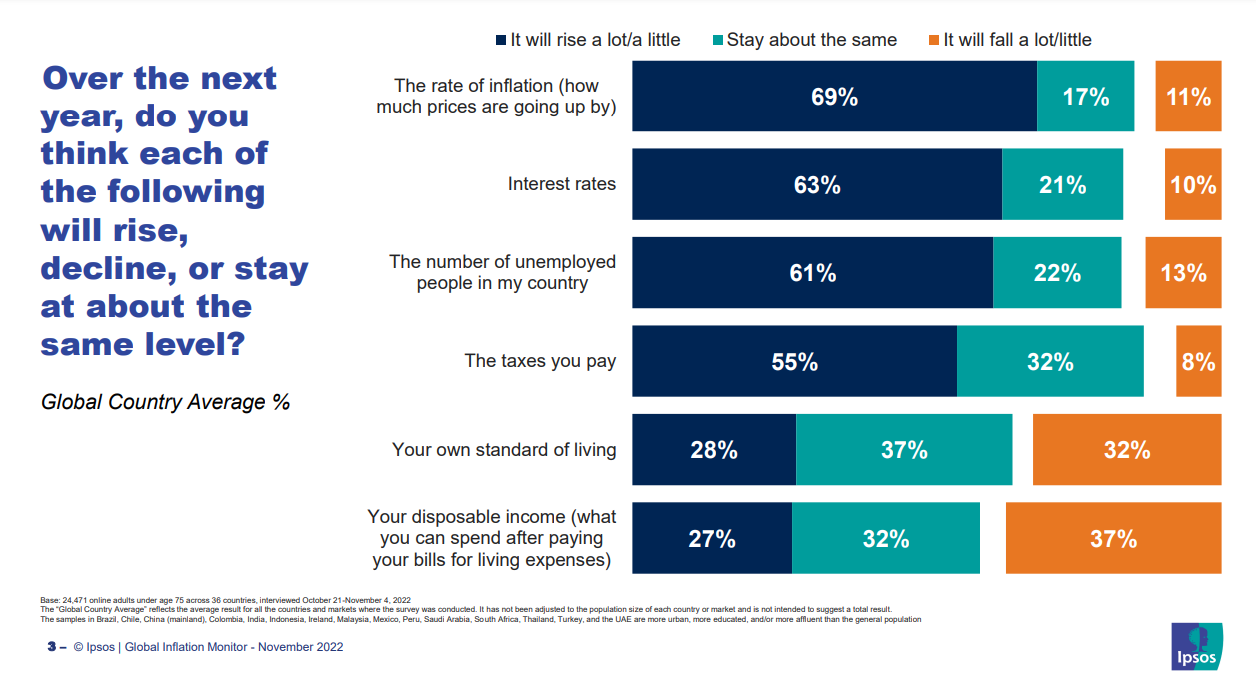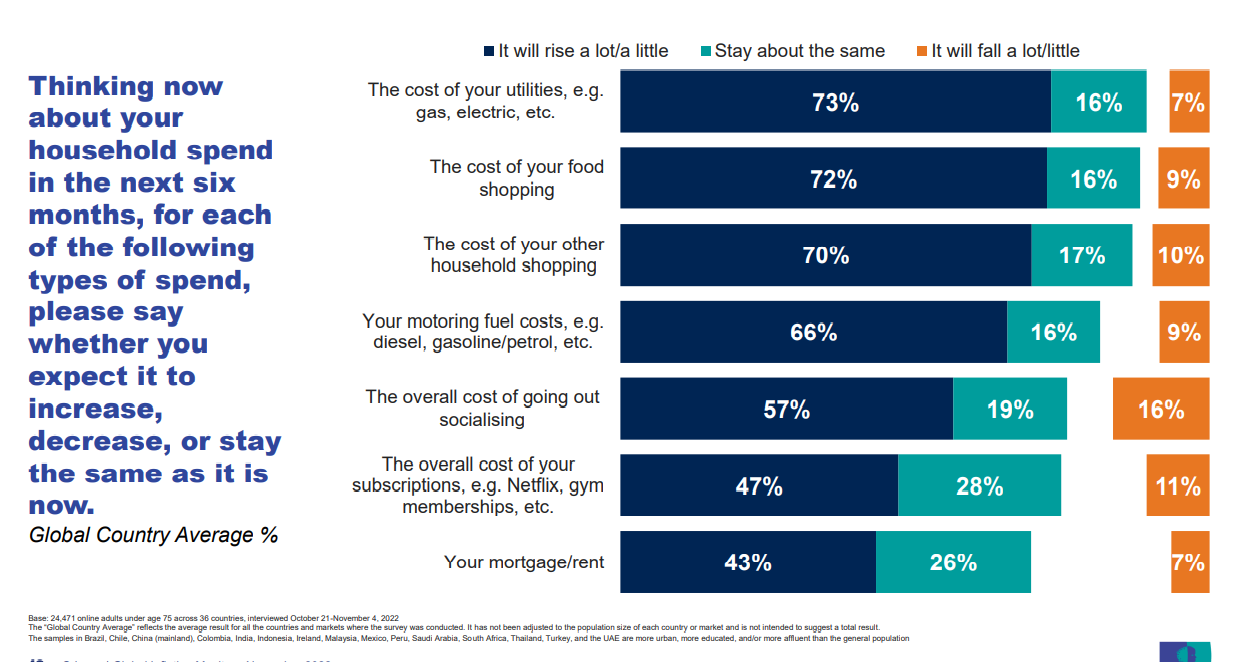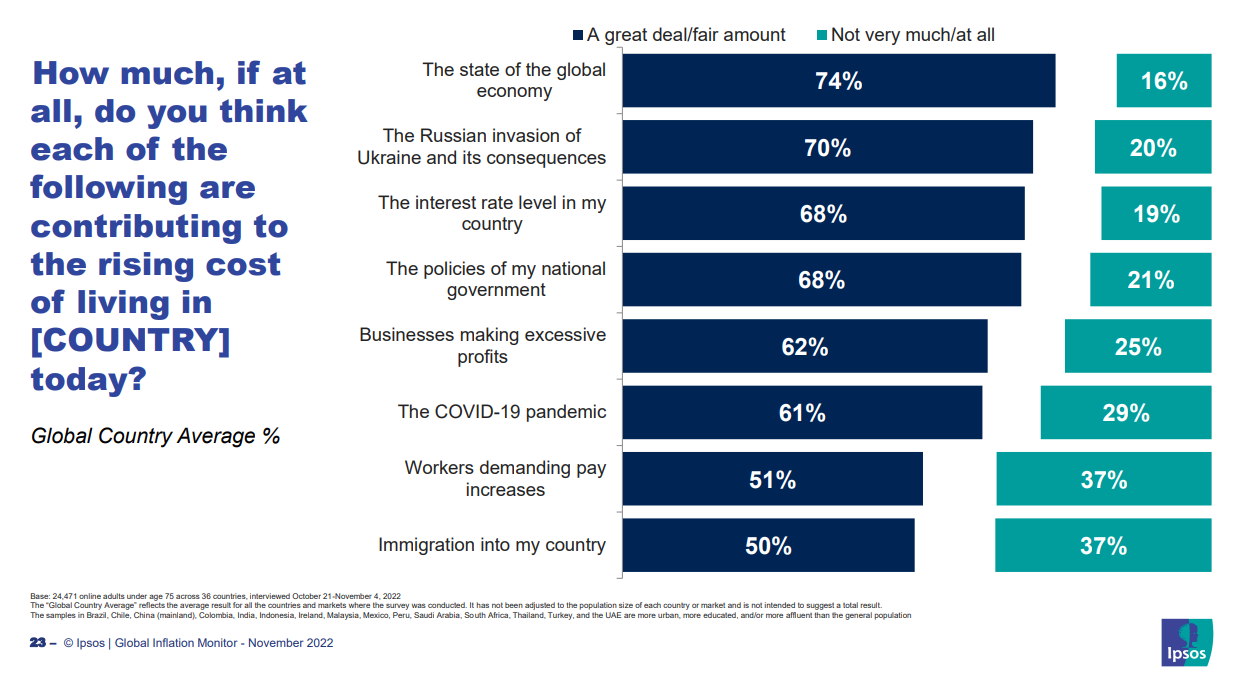
Consumers pessimistic, expect taxes, inflation and unemployment to rise
Consumers voice extremely gloomy opinions when they are asked about 2023. A survey suggests that many people expect inflation, taxes and unemployment to further increase next year.
Consumers all over the world have a pessimistic outlook regarding both their country and their own lives next year. Most of them expect their personal financial situation to deteriorate, a survey by Ipsos, conducted in 36 countries, suggests.
The survey, commissioned by the World Economic Forum, reveals that more than half of the consumers surveyed expect a further increase in inflation, interest rates and unemployment, and believe that their standard of living and disposable income will decrease in 2023.

Respondents from European countries participating in the survey include, among others, consumers in Hungary, Poland, Romania, Germany, the Netherlands, Ireland, Belgium, Spain, France, Sweden, the United Kingdom and Denmark.
More than 7 out of 10 respondents (71 per cent) expect inflation to continue to rise further next year, with 67 and 64 per cent respectively forecasting a similar tendency in interest rates and unemployment. More than half of respondents (58 per cent) believe that the fluctuating performance of the global economy will lead to tax increases in their country, while only 29 per cent expect their own living standards to improve and 28 per cent say their disposable income will be higher.
Romania, France and Spain top the list of European countries where consumers believe their tax liability will rise next year, with a staggering 85 per cent of Romanians, compared to 66 per cent and 63 per cent in France and Spain respectively.
The majority of those worried about the cost of living crisis expect the price of utilities, food and other household items to rise, while they are less concerned about mortgages, rent and the cost of socialising.

Almost three quarters of consumers (74 per cent) blame the global economic situation for their pessimistic outlook, while 70 per cent attribute the rise in prices to the Russian invasion of Ukraine and its consequences. Nearly two-thirds (62 per cent) say businesses are making excessive profits at the expense of consumers, 61 per cent blame the COVID outbreak, while half of the respondents think that immigration to their country is a cause for concern.

Tags:

